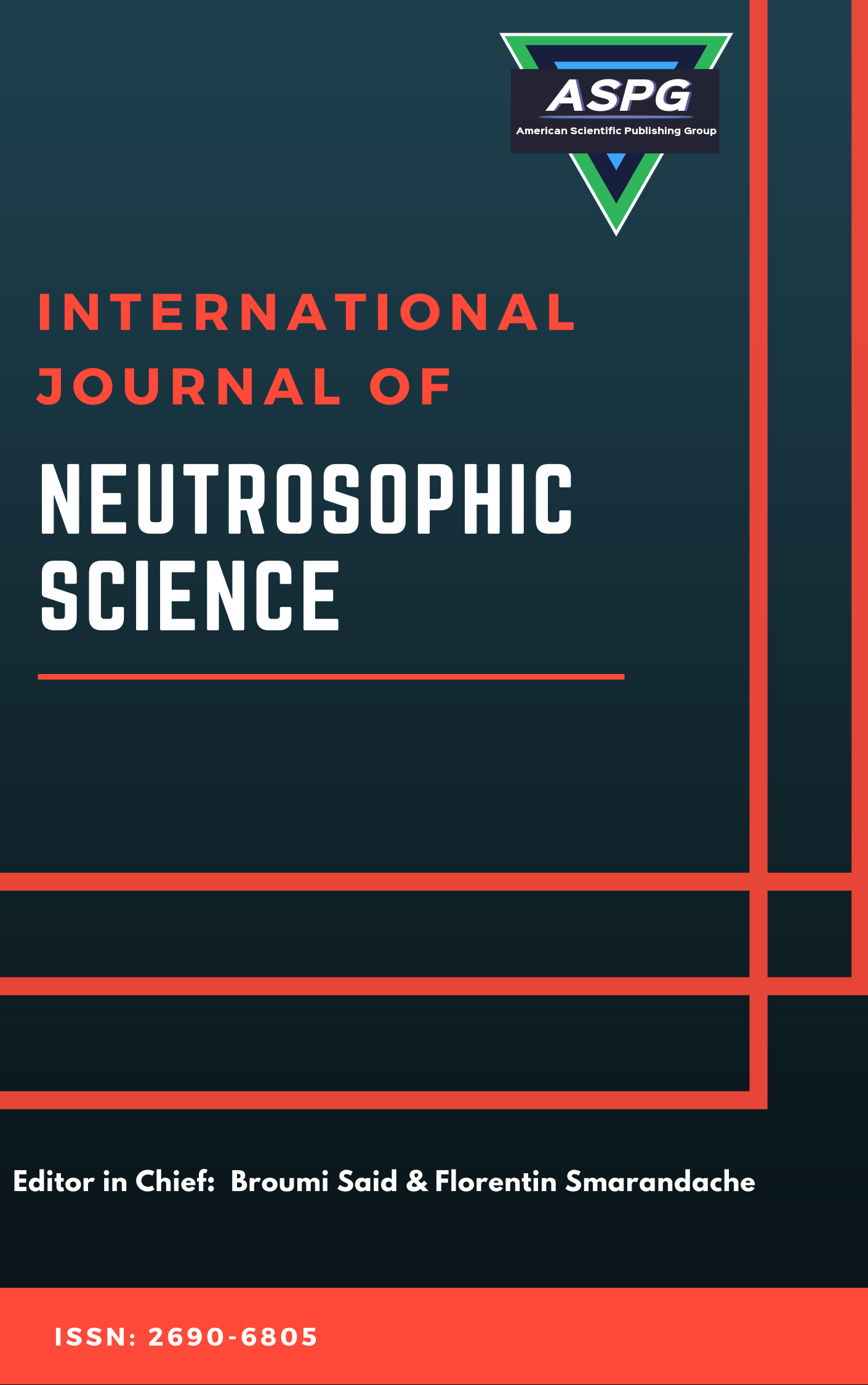

Volume 24 , Issue 2 , PP: 246-257, 2024 | Cite this article as | XML | Html | PDF | Full Length Article
Alsadig Ahmed 1 *
Doi: https://doi.org/10.54216/IJNS.240222
Cybersecurity has become a primary concern as the financial sectors generally handle increasing cyber-attacks and an increasing danger of financial crime. Recently, ransomware attacks have intensified, affecting enterprises, and crucial infrastructure worldwide. Ransomware employs sophisticated encryption techniques to encrypt data on the targeted device, then requests payment for decrypting the data. Artificial intelligence (AI) approaches involving ML were progressively employed in the domain of cybersecurity and significantly subsidized to preventing and detecting variety of threats. On the other hand, the several researchers that employed ML to identify ransomware are still constrained by the accuracy of models, the complication of malware, the high false-positive rate, and the lack of setting up the appropriate analysis environment. Therefore, there is a need to design efficient ransomware detection based on ML algorithms. This work introduces a modified Single Value Neutrosophic Fuzzy Soft Expert Set (M-SVNFSES) technique for cyberattack detection. The main purpose of the M-SVNFSES system is to detect and recognize the existence of cyberattacks in the financial sectors. In the M-SVNFSES technique, min-max normalization is used as an initial pre-processing stage. For the identification of cyberattacks in the financial sectors, the M-SVNFSES technique uses the SVNFSES model. To enhance its performance, the M-SVNFSES technique makes use of a bat optimization algorithm (BOA). The performance of the M-SVNFSES methodology was extensively studied using financial datasets. The experimental outcomes depicted that the M-SVNFSES method reaches optimal detection performance in attack detection process
Ransomware , Cyberattack Detection , Bat Optimization Algorithm , Neutrosophic Fuzzy Soft Expert Set , Machine Learning
[1] Sharmeen, S., Ahmed, Y.A., Huda, S., Koçer, B.Ş. and Hassan, M.M., 2020. Avoiding future digital extortion through robust protection against ransomware threats using deep learning based adaptive approaches. IEEE Access, 8, pp.24522-24534.
[2] Al-Hawawreh, M. and Sitnikova, E., 2019, August. Industrial Internet of Things based ransomware detection using stacked variational neural network. In Proceedings of the 3rd international conference on big data and internet of things (pp. 126-130).
[3] Manjezi, Z. and Botha, R.A., 2019. Preventing and Mitigating Ransomware: A Systematic Literature Review. In Information Security: 17th International Conference, ISSA 2018, Pretoria, South Africa, August 15–16, 2018, Revised Selected Papers 17 (pp. 149-162). Springer International Publishing.
[4] Al-Alawi, A.I. and Al-Bassam, M.S.A., 2020. The significance of cybersecurity system in helping managing risk in banking and financial sector. Journal of Xidian University, 14(7), pp.1523-1536.
[5] Hirano M, Kobayashi R. Machine Learning-based Ransomware Detection Using Low-level Memory Access Patterns Obtained From Live-forensic Hypervisor. In 2022 IEEE International Conference on Cyber Security and Resilience (CSR). 2022.
[6] Singh A, Ikuesan RA, Venter H. “Ransomware detection using process memory,” arXiv preprint arXiv:2203.16871, 2022.
[7] Medhat M, Essa M, Faisal H, Sayed SG. Yaramon: A Memory-based Detection Framework for Ransomware Families. In 2020 15th International Conference for Internet Technology and Secured Transactions (ICITST). 2020.
[8] Dener M, Ok G, Orman A. Malware detection using memory analysis data in big data environment. Appl Sci 2022;12:8604.
[9] Mishra, R., Butakov, S., Jaafar, F. and Memon, N., 2020, August. Behavioral Study of Malware Affecting Financial Institutions and Clients. In 2020 IEEE Intl Conf on Dependable, Autonomic and Secure Computing, Intl Conf on Pervasive Intelligence and Computing, Intl Conf on Cloud and Big Data Computing, Intl Conf on Cyber Science and Technology Congress (DASC/PiCom/CBDCom/CyberSciTech) (pp. 79-86). IEEE.
[10] Cyriac, N.T. and Sadath, L., 2019, November. Is Cyber security enough-A study on big data security Breaches in financial institutions. In 2019 4th International Conference on Information Systems and Computer Networks (ISCON) (pp. 380-385). IEEE.
[11] Gong, Y., Zhu, M., Huo, S., Xiang, Y. and Yu, H., 2024. Enhancing Cybersecurity Resilience in Finance with Deep Learning for Advanced Threat Detection. arXiv preprint arXiv:2402.09820.
[12] Albakri, A., Alhayan, F., Alturki, N., Ahamed, S. and Shamsudheen, S., 2023. Metaheuristics with deep learning model for cybersecurity and Android malware detection and classification. Applied Sciences, 13(4), p.2172.
[13] Nkongolo Wa Nkongolo, M., 2024. RFSA: A Ransomware Feature Selection Algorithm for Multivariate Analysis of Malware Behavior in Cryptocurrency. International Journal of Computing and Digital Systems, 15(1), pp.893-927.
[14] Musonda, M., Zimba, A. and Sinyinda, M., 2023, December. Machine learning-based crypto ransomware detection model on windows platforms. In Proceedings of International Conference for ICT (ICICT)-Zambia (Vol. 5, No. 1, pp. 141-147).
[15] Florence, S.M., Raghava, A., Krishna, M.Y., Sinha, S., Pasagada, K. and Kharol, T., 2024. Enhancing Crypto Ransomware Detection Through Network Analysis and Machine Learning. In Innovative Machine Learning Applications for Cryptography (pp. 212-230). IGI Global.
[16] Jagan, S., Ashish, A., Mahdal, M., Isabels, K.R., Dhanke, J., Jain, P. and Elangovan, M., 2023. A meta-classification model for optimized ZBot malware prediction using learning algorithms. Mathematics, 11(13), p.2840.
[17] Henderi, H., Wahyuningsih, T. and Rahwanto, E., 2021. Comparison of Min-Max normalization and Z-Score Normalization in the K-nearest neighbor (kNN) Algorithm to Test the Accuracy of Types of Breast Cancer. International Journal of Informatics and Information Systems, 4(1), pp.13-20.
[18] Al-Sharqi, F., Al-Quran, A., Khalifa, H.A.E.W., Alqahtani, H., Yousif, B.A.A., Rawan, A. and Aladil, M., Orthogonal distance and similarity for single-valued neutrosophic fuzzy soft expert environment and its application in decision-making.
[19] Wang, Y., Wang, P., Zhang, J., Cui, Z., Cai, X., Zhang, W. and Chen, J., 2019. A novel bat algorithm with multiple strategies coupling for numerical optimization. Mathematics, 7(2), p.135.
[20] Aljabri, M., Alhaidari, F., Albuainain, A., Alrashidi, S., Alansari, J., Alqahtani, W. and Alshaya, J., 2024. Ransomware detection based on machine learning using memory features. Egyptian Informatics Journal, 25, p.100445.